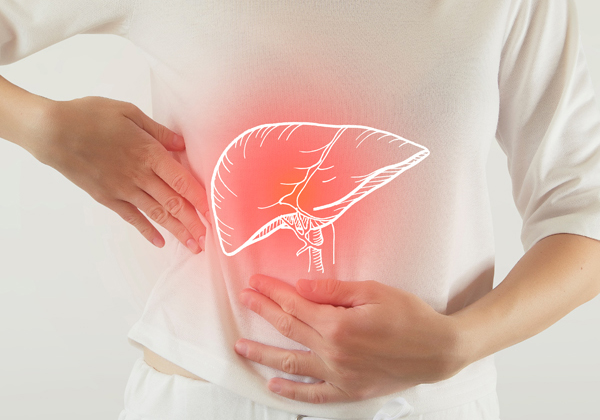
Hepatitis A Vaccine
What is Hepatitis A and how do you catch it?
Hepatitis A is a liver infection caused by a virus. It’s typically spread via the stool of someone carrying the infection.
Generally, the areas with the highest cases of hepatitis A are those where sanitation and food hygiene are poor.
You can contract hepatitis A in a number of ways:
- From someone with the infection not washing their hands thoroughly and preparing food which you eat
- Washing hands in contaminated water and preparing food that you eat
- Drinking contaminated water (including ice cubes)
- Eating raw or undercooked seafood sourced from contaminated water
- Being in close contact with someone who has the infection
- Having intercourse with someone with the infection (particularly men who have sex with men)
- Injecting drugs using contaminated equipment
It is worth noting that the infection is at its most contagious stage in the two weeks before symptoms appear, up until about a week after the symptoms first show.
Popular affected travel locations include
- Africa
- Indian subcontinents
- Far East
- Middle East
- Central and South America
Treatment Options
-

Avaxim (Hep A) or Twinrix (Hep A & B) - One Dose
-

Viatim ( Hep A & Typhoid) - A 2nd dose 6-12 months later will give 20 years immunity
Travelling abroad and not sure if you're at risk?
If you’re unsure about the vaccine, have any questions or want to find out what vaccines you need. We’re here to help, book your appointment online or call us on 0208 393 1000.

Top Tips for protecting against Hepatitis A
- It is best to be careful with foods if you do not know how they have been prepared and cooked.
- You should only drink boiled or bottled water and wash your hands very carefully after going to the toilet and before preparing food.
- If you think you have symptoms of hepatitis, always seek advice from a doctor.
- When to get vaccinated: You should get vaccinated at least two weeks before travelling.
- Children: The vaccine is suitable for children over the age of one.
In addition to the hepatitis A vaccination, there are combined vaccination courses for hepatitis A and typhoid as well as hepatitis A and hepatitis B. If you are unsure as to which vaccine is best for you we will be able to recommend the most suitable treatment for you.

Get Your Hepatitis A Vaccination at Miles Pharmacy
Travelling the globe is one of the pleasures of life. It is a great way to explore new cultures, foods, and places, however, it does require careful planning and preparation to make sure you travel smartly to prevent getting diseases such as Hepatitis A. The best way to avoid getting hepatitis A is to get the hepatitis A vaccination.
If you’re venturing outside of the UK, be sure to include a visit to our Miles Pharmacy Travel Clinic in Epsom, servicing areas Banstead, Sutton, Stoneleigh, Cheam, Chessington, and Worcester Park, for your travel vaccines and medications for travel, especially if you are visiting high-risk countries.

Hepatitis Symptoms
Hepatitis A symptoms typically appear a few weeks after you’ve been infected with the virus. However, not everyone with hepatitis A develops symptoms. If you do, symptoms may include:
- Unusual weakness and tiredness
- Sudden nausea, vomiting, or diarrhoea
- Abdominal pain or discomfort, especially where your liver is
- Grey-coloured stool
- Decrease in appetite
- Mild fever
- Dark urine
- Joint pain
- Jaundice
- Intense itching
These symptoms may be relatively mild and go away in a few weeks. Sometimes, however, hepatitis A can result in severe illness that lasts several months and requires medical attention
Questions About Hepatitis A?
Hepatitis A is a liver infection caused by the Hepatitis A virus. It is typically spread through contaminated food or water, or close contact with an infected person. The virus can cause inflammation of the liver, leading to symptoms such as jaundice (yellowing of the skin and eyes), fatigue, nausea, abdominal pain, and loss of appetite.
Hepatitis A is transmitted primarily through the fecal-oral route. This means that the virus is ingested through contaminated food or water, or by coming into contact with objects, surfaces, or people that have the virus on them. Poor sanitation and hygiene practices can contribute to its spread.
Yes, it is recommended to book an appointment in advance for the Hepatitis A vaccine. This ensures that we have the vaccine in stock and that one of team will be available to administer it at a convenient time for you. You can find the perfect time for your vaccine using our booking system.
We have two treatment options to provide cover from Hepatitis A. Avaxim (Hep A) or Twinrix (Hep A & B) both require one dose where Viatim ( Hep A & Typhoid) needs a 2nd dose 6-12 months later but will give up to 20 years of immunity. If you have any questions or want to know more about your options please contact our pharmacy team.
The Hepatitis A vaccine is highly effective in preventing Hepatitis A infection. Studies have shown that it provides long-lasting immunity and is estimated to be over 95% effective in preventing the disease.
It is recommended to start the Hepatitis A vaccination series at least two weeks before your trip. However, getting vaccinated earlier, ideally six to twelve months before travel, is beneficial for long-term protection.
Common side effects of the Hepatitis A vaccine include:
- Soreness, redness, or swelling at the injection site
- Mild fever
- Headache
- Fatigue
These side effects are usually mild and go away on their own within a few days.
Most individuals do not need booster doses of the Hepatitis A vaccine if they have completed the full series of doses. The vaccine provides long-lasting immunity, and a booster dose is usually not required.
In addition to getting vaccinated, you can take the following precautions to reduce the risk of Hepatitis A while traveling:
- Drink bottled water or use water purification methods
- Avoid consuming raw or undercooked shellfish and other foods
- Wash your hands frequently with soap and water, especially before eating or preparing food
- Avoid eating street food from unreliable sources

